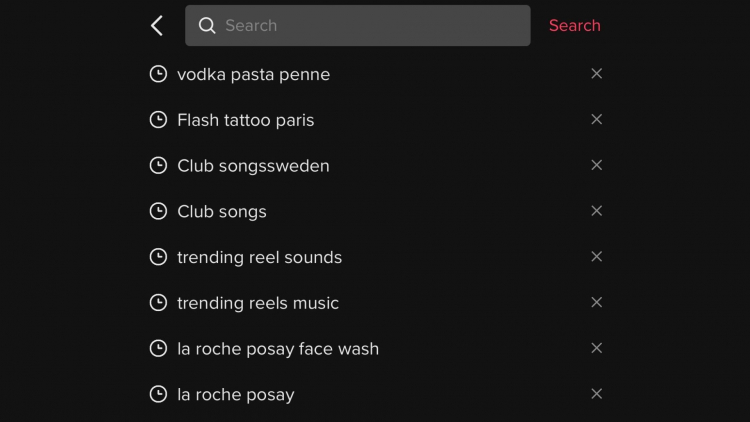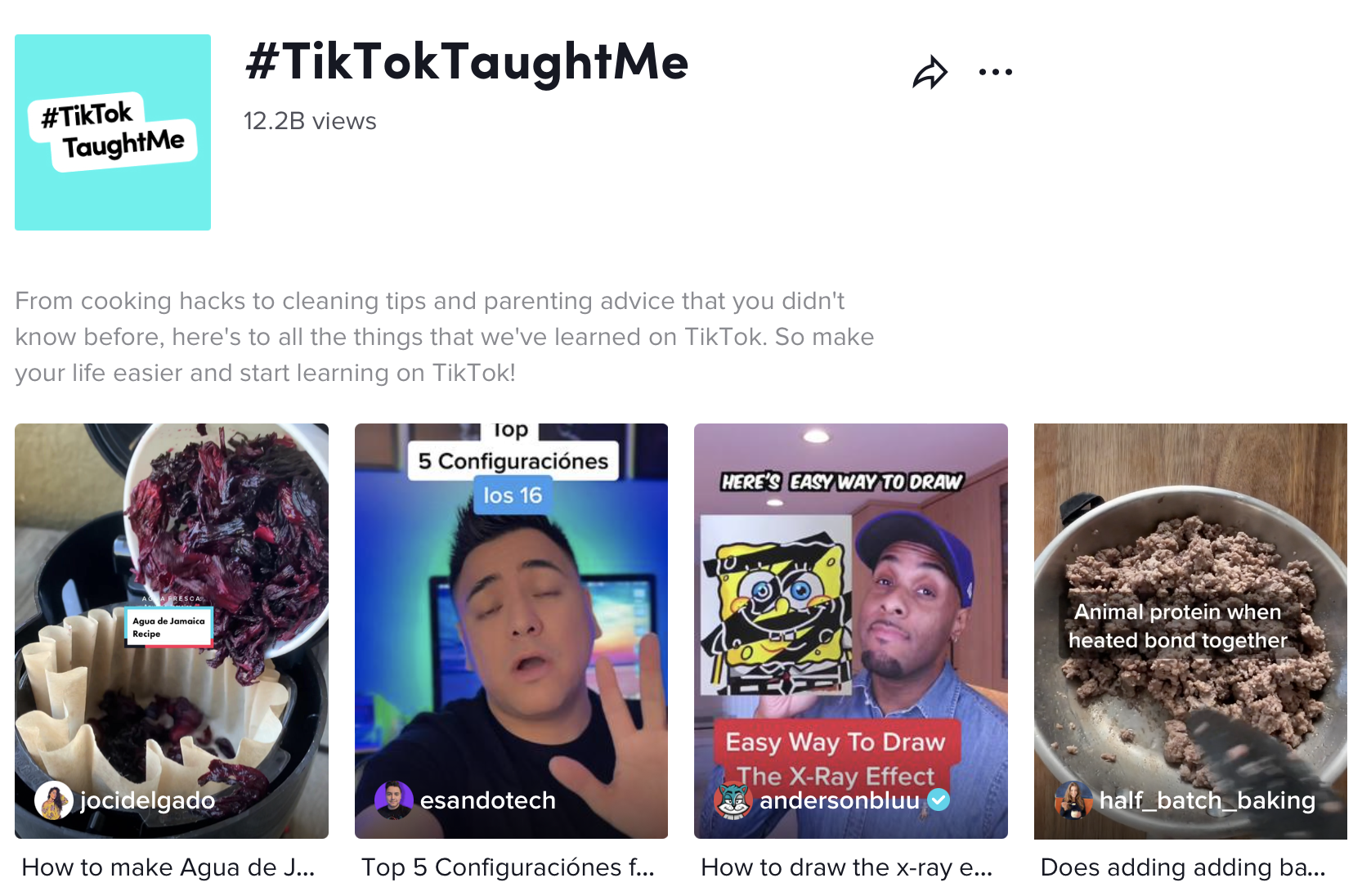“I Don’t Google, I TikTok”

I don’t Google anymore I TikTok
— LUKKZ 🇺🇬 (@ClaudeLukkz) June 8, 2022
When I first read the phrase “I don’t Google, I TikTok,” I smirked in agreement, but there wasn’t much thought behind it. More recently, I found myself preparing for a trip by searching TikTok for recommendations on places to go and things to do. Any questions I had regarding a destination, I searched on TikTok and not Google. When it came to traveling and local experiences, I found TikTok’s results to be more accurate, realistic, and entertaining. From daily vlogs to restaurant recommendations, I could find just about anything on TikTok and I trust the source because I could see it was coming from a real person.
Natalia Vega, a Gen Z content creator with over 15 thousand followers on TikTok, most recently searched the app for videos about the case of Lola Daviet. Lola Daviet was a 12 year-old girl whose body was found inside a suitcase in Paris. “I like to get the news from TikTok because I prefer visually seeing and hearing someone tell me the news instead of reading an article,” she said. Natalie is part of the 40% of French locals who reported using social media as a source of news.
While a large chunk of the world's population relies on social media platforms like TikTok for their access to news, these platforms have also proven to host fake news and spread misinformation. Social media platforms make it easy for footage to be recycled and misused. France 24 and The BBC looked at wartok, a hashtag of TikTok videos, to decipher what content was real and which videos were fake. One video in particular showed a supposed Russian soldier flying into Ukraine but it was then found that the video footage was originally from 2015 and had nothing to do with the current situation. The BBC also pointed out how simple it is to recycle footage and scam users. During the earlier days of the war, TikTok accounts sourced old Ukrainian military training videos from YouTube and paired them with fake explosion audios to launch live streams which allowed them to ask for donations for their accounts.
TikTok’s platform design makes spreading misinformation about Ukraine easy. Just use an old audio. The audio used here is a year old.
Caption says “join live” because livestreams are profitable. There’s been a surge of fake Ukraine livestreams raking in donations on TikTok. pic.twitter.com/sJaqN5nUhp— Abbie Richards (@abbieasr) February 28, 2022
While Google now incorporates TikTok videos in their search results, the experience is just not the same. On Google, one has to scroll through and read various text-heavy results before finding the one that fits what they're looking for, often having to scroll past sponsored content and Google Maps content. TikTok’s algorithm facilitates searching by doing the scrolling and sorting for you; it only presents you with relevant videos tailored specifically to you. Whether you're interested in books, crime, or astrology, TikTok’s algorithm will push you into whatever direction you indicate it to.
Daisy Hoops, an AUP Graduate Student who searches the app for recommendations said, “I find TikTok to be quicker and more efficient than Google. It's videos, and that usually makes my search time shorter. Plus, I don't have to scroll through any ads either!”
The news is not shocking as Google has acknowledged this trend at its last conference in July. Prabhakar Raghavan, the Senior Vice President of Google, said that when looking for a place to grab lunch, “40% of young people don’t go to Google Maps or Search, they go to Instagram or TikTok.” The statistic comes from Google’s internal research of users aged 18-24, making them members of GenZ. Google also reported that 55% of product searches begin on Amazon.
Google is the top search engine in the world, but TikTok is giving them a run for their money. TikTok ranks second, behind YouTube, in top platforms used by GenZ Americans. TikTok’s video time limits give users a range of options based on their attention span. Videos on the platform range from a few seconds to ten minutes. This makes the platform the perfect place to find anything from Vine-like comedic skits to more in-depth tutorials.
“Most of the time, when I want to know something, I look on TikTok. It makes me feel safer watching people’s experiences. I relate to the creator and feel like I’m close with them. You realize that most people on the app share the same interests or experiences as you,” said Natalia.
TikTok has evolved from a dancing app to an educational platform. The hashtag #tiktoktaughtme has almost 12 billion views. Users claim to have learned things like American Sign Language, crocheting, or how to cook. While there is a positive side to users on the platform gaining skills, there is also a threat. In an effort to normalize medical conditions, many on the platform have begun misdiagnosing themselves based on videos that share broad symptoms and other individuals' experiences with a disorder. Much like when people Google their symptoms and suddenly believe they have cancer, TikTok users have been using the platform to diagnose themselves with Attention Deficit Disorder. Each disorder even has its own hashtag on the app (e.g. #BDP and #bipolar). These hashtags have billions of views each.
Every day, the phrase “I don’t Google, I TikTok” becomes more and more relevant. People around the world want a personalized search experience, which is exactly what TikTok provides. Though most people who turn to TikTok as a search engine rely on the honesty of its creators, everyone must be wary of the accuracy of the information being shared. When using the platform, take every piece of information with a grain of salt, be mindful of the facts being shared, and double check the facts before continuing to spread them.








